Our partnerships
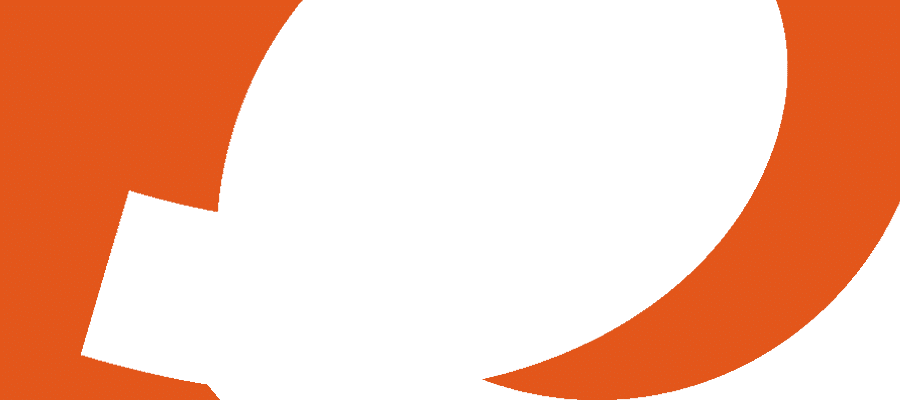
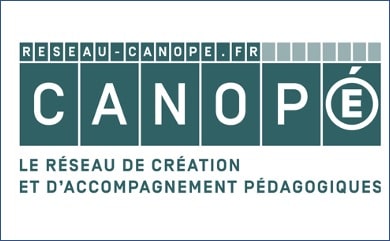
Atelier Canopé 95 / Maison Départementale de l'Éducation du Val d'Oise
The Maison Départementale de l'Education du Val-d'Oise supports all the actors and partners of the educational system. Within it, the Canopé 95 workshop is responsible for the training and professional development of teachers, particularly in the use of digital tools and environments.
Action Education and Atelier Canopé 95 worked on the Partenariat pour l'Efficacité de l'Education project, which included a series of actions to improve the quality of education in the department (teacher training, support for schools, work on the school-family relationship, etc.) and on the Learning Together through Cooperation and MediaThe project, which focuses on media education and international solidarity, is aimed at French and Senegalese children and teachers.
In addition, the two organisations co-pilot the Cohérence éducative dans le Val-d'Oise dynamic, which brings together the department's educational players around study days and reflection.
https://www.reseau-canope.fr/academie-de-versailles/atelier-canope-95-saint-ouen-laumone.html/
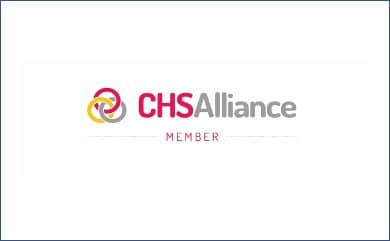
CHS Alliance
As part of the development of its quality policy, Action Education has chosen to join the CHS Alliance in June 2020, a group of over 150 humanitarian and development organisations committed to making aid work better for stakeholders.
Its vision is that people and communities vulnerable to risk and affected by disaster, conflict or poverty should be able to access quality support and hold the organisations that support them to account.
Through its mission, it promotes respect for the rights and dignity of people and communities vulnerable to risk and affected by disaster, conflict or poverty in order to improve the effectiveness and impact of support by creating a culture of quality and accountability.
With these members, the movement aims to strengthen accountability and put the stakeholders affected by the interventions at the heart of what they do by implementing the Core Quality and Accountability Standard (CQAS).
Therefore, the CHS Alliance advises, guides and trains organisations to :
- Being Accountable to Affected Populations (AAP)
- Protecting against sexual exploitation, abuse and harassment (PEAHS)
- Better management
The Core Quality and Accountability Standard provides the framework for the CHS Alliance to help organisations apply this standard, verify performance against its nine quality commitments and criteria and improve over time.
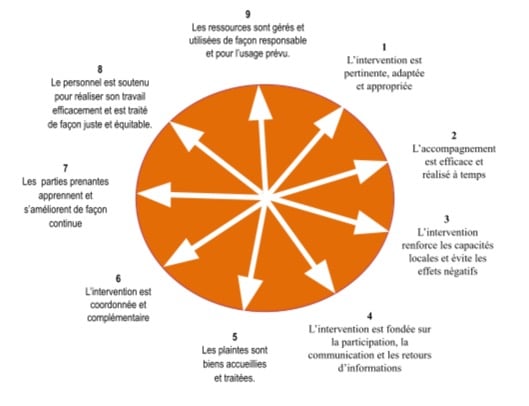
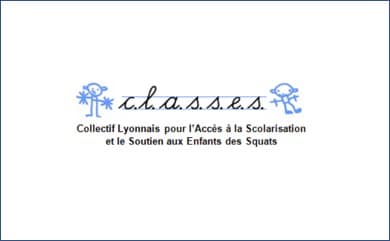
C.L.A.S.S.E.S (Collectif Lyonnais pour l'Accès à la Scolarisation et le Soutien aux Enfants des Squats)
Founded in 2006, CLASSES is an association that works in the Lyon region to help families in great difficulty to send their children to school, to keep them there and to support them in their success.
The association works with numerous volunteers working with migrant populations living in shanty towns, squats, social hotels or on the streets, most often from Romania, Bulgaria, Albania, Moldavia, Ukraine and Africa. In addition to school mediation, they aim to give a voice to the people concerned, and are particularly involved in improving the training of staff working with these groups, whether in the social or educational field.
Since 2021, Action Education has been supporting Classes to strengthen its team (co-financing with the Fondation Abbé Pierre of a training officer) which allows it to develop its project of cross-training "social work and slums" and to ensure the involvement of the first concerned peer trainers in this construction and training offer. Classes and Action Education are jointly exploring projects to be carried out around the identified partnership axes.
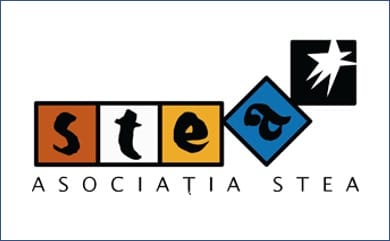
STEA
Stea is a Romanian association, created in 2004 by Romanian and French volunteers, and
which has been working since 2016 on the social inclusion of the Roma community in the Sătmărel district, the largest marginalised urban area in the city of Satu Mare where more than 450 people, including 181 children, currently live in vulnerable situations and in precarious housing.
Since 2018, Action Education has been working with Stea on three axes of its mission: access, quality and continuity of education (children's education and parents' education), community mobilisation and social and educational inclusion of families/parents and support towards socio-professional integration of young people and adults in Sătmărel.
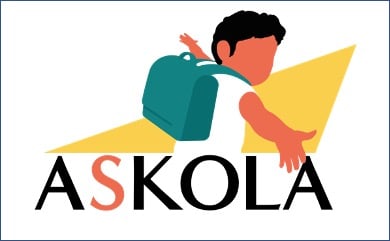
ASKOLA
Askola is a French association founded in 2006 that works to combat the obstacles to schooling for children who are far from school because they live in squats, shanty towns, on the street or in social hotels, or belong to discriminated groups) in Seine-Saint-Denis (93).
Since 2018, Action Education has been accompanying and supporting Askola mainly in two of its areas of work: school mediation and its educational actions carried out in their school trucks.
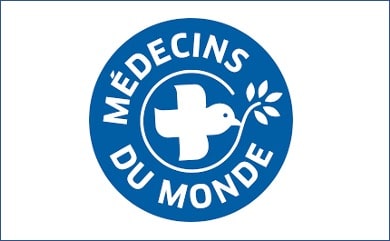
Médecins du Monde Bulgaria
Médecins du Monde (MdM) has been working since 2004 in Sliven, Bulgaria, with vulnerable populations living in the Nadejda district.
This district, separated from the rest of the city by a wall, is characterised by poor infrastructure. Its population, increasingly marginalised and excluded, is faced with poverty, illiteracy and unemployment. As a result, the health situation is deteriorating.
Since 2021, MdM and Action Education have been working in partnership with a local team made up mainly of people from the neighbourhood to give young people and women the opportunity to mobilise individually and collectively to improve their living conditions and be able to defend their rights.
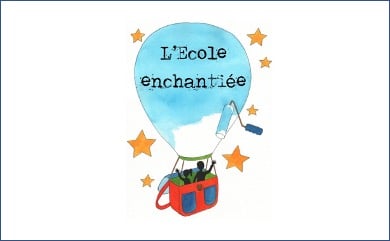
The Enchanted School
L'Ecole enchantiée is inspired by voluntary and professional experience in the education of children living in very precarious situations (shanty towns, squats, streets, etc.).
While schooling for children is essential, without preparation and comprehensive support for the needs of families it too often leads to failure
L'Ecole enchantiée wishes to provide families with the stability of a place anchored in the city (Montreuil) to enable them, from an approach centred on the schooling of children and in particular on the accompaniment of teenagers towards a professional project, to take the time to move forward towards an exit from precariousness.
L'Ecole enchantiée and Action Education are offering children previously enrolled in the UPE2A class at the Césaria Evora secondary school in Montreuil the opportunity to take part in a Plaisir de lire et d'écrire workshop.
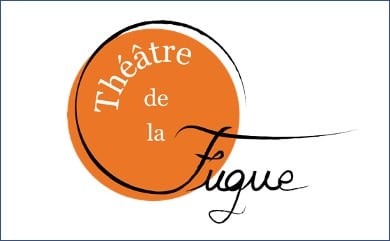
The Fugue Theatre
The Théâtre de la Fugue is a theatre company, founded in 1993, which has built its identity at the crossroads of different creative poles and commitments. The company has already created around forty shows and has performed in a wide variety of settings and at numerous festivals.
She also provides Forum Theatre interventions and training.
Taking theatre as a source of education and emancipation, she conducts socio-educational and artistic fieldwork with disadvantaged populations and solidarity associations. She also runs school and university workshops.
The collaboration of the Théâtre de la Fugue with Action Education started in 2009. Since 2016, training in Forum Theatre and support for the creation of sketches have been offered to volunteer actors. The Forum Theatre group offers public awareness-raising interventions in different structures around Living Together, gender and children's rights.

MAN Ile-de-France (Movement for a Non-violent Alternative)
A non-violent movement for reflection and action born in 1974, MAN is an association under the French law of 1901 which federates about twenty local groups with more than 400 members. MAN's objective is to promote non-violence and to highlight its specific contribution to daily life, education and social and political struggles. Through reflection, action and training, MAN seeks to promote a society of justice and freedom through a non-violent strategy.
MAN Ile-de-France and Action Education have jointly created a cycle of education in non-violence aimed at the CM1/2. Since 2019, volunteers from MAN Ile-de-France and Action Education have been trained and then run the Becoming an actor for peace course in primary schools.
https://nonviolence.fr/Ile-de-France
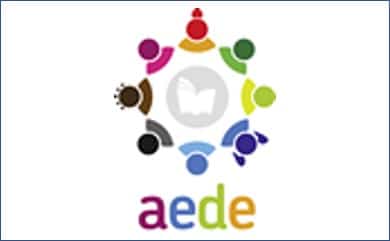
AEDE - Working together for the rights of the child
The Collectif Agir Ensemble pour les Droits de l'Enfant (AEDE) is composed of about fifty organisations (associations, collectives and trade unions) active in all areas of childhood: health, justice, education, support for parents, and disability in particular. Beyond their own organisational cultures and their specific "territories" of action, these organisations have come together to collectively think about the situation of children's rights in France.
On the occasion of the periodic monitoring of France's implementation of the International Convention on the Rights of the Child (CRC), the collective drafts a report on the situation of children in France for the United Nations Committee on the Rights of the Child, in order to promote children's rights and their respect. It also formulates recommendations on the respect of children's rights, and constantly lobbies the French authorities.
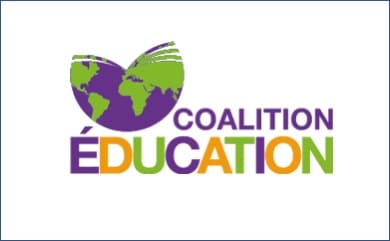
The Education Coalition
The Education Coalition, led by Action Education, brings together 22 French civil society organisations (trade unions, international solidarity associations, NGOs defending the right to education, popular education organisations). It promotes the right to inclusive quality education for all, especially for the most vulnerable. Furthermore, its mission is to "ensure inclusive and equitable quality education and promote lifelong learning opportunities for all", as stated in the Sustainable Development Goal 4 adopted by the United Nations in September 2015.
The Education Coalition carries out advocacy work to encourage governments to fund education for the most vulnerable populations. It carries out awareness-raising campaigns for the general public on the issues related to quality education for all. It also lobbies French leaders to strengthen policies and public aid for education in developing countries. Its role is also to bring the issues of education to the attention of the media, in order to alert civil society to the importance of the fight for universal access to knowledge and its major challenges.
The Education Coalition is part of the Global Campaign for Education, whose demands it relays at French and European levels.
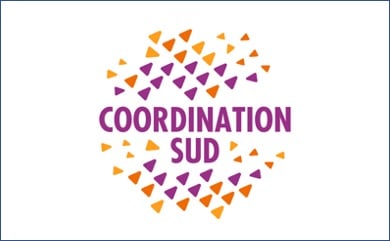
SUD Coordination
Action Education is a member of Coordination SUD - Solidarité Urgence Développement, the national coordinating body of French international solidarity NGOs. Founded in 1994, it brings together more than 170 NGOs that carry out emergency humanitarian actions, development aid, environmental protection, and the defence of human rights among disadvantaged populations, as well as actions of education in international solidarity and advocacy.
Coordination SUD has a dual mission of supporting the professionalisation of French NGOs and representing their positions to public and private institutions in France, Europe and the world. It develops monitoring, information dissemination, advisory and training services. It manages a joint fund for co-financing external expertise on the various aspects of organisational and institutional performance for NGOs. Finally, it runs thematic working committees composed of its members, mobilised on major issues of international solidarity.
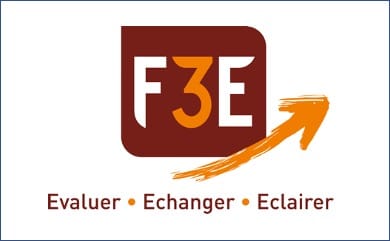
F3E
Created in 1994, the F3E brings together more than 85 organisations from the international cooperation and solidarity sector in France. This associative network is entirely dedicated to the quality of working methods related to international solidarity or decentralised cooperation actions. Action Education is a member of its board of directors.
The acronym of the F3E can be explained as follows: the "F" refers to its historical function as a "Fund" which enables its members to obtain funding for some of their studies and evaluations. As for the 3 "E", they represent the 3 major axes of its mission: Evaluate, Exchange and Enlighten.
Evaluate, to measure the impact of solidarity actions and give them meaning
Exchange, to learn from experiences and differences
To enlighten, in order to accompany the actors of the sector in their decisions
In addition, the F3E provides personalised support to its members, in order to assist them in the continuous improvement of their practices. To this end, it produces methodological tools and organises training courses to promote a culture of demanding evaluation within each of them. It also organises exchange sessions between its members in order to promote the dissemination of knowledge and good practice. These exchanges also feed the F3E's know-how.
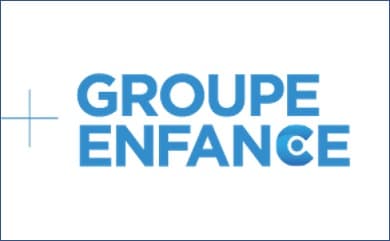
Children's group
Created in 2014 at the initiative of SOS Children's Villages, ECPAT France and Un Enfant par la Main within the framework of the Humanitarian and Development Coordination, the Groupe Enfance now brings together 18 NGOs committed to the defence of children's rights internationally. Aide et Action is a member of the Groupe Enfance since June 2019 and a member of the Steering Committee since March 2020. The member organizations of the Groupe Enfance share the conviction that constant and sustained attention to children and their rights is a powerful lever to start a virtuous circle towards equality, the achievement of sustainable development goals and peace. Together, they have the ambition to instil sustainable effects of the integration of children's rights in their operational strategies as well as in France's international policy.
Their mission is to influence political decision-makers through targeted advocacy actions, to strengthen the capacities of international solidarity actors through regular exchanges of practices and to mobilise the general public for the realisation of children's rights, in particular on the occasion of the International Day for the Rights of the Child (20 November) by organising a collective event entitled "Objectif Enfance".
In 2020, the Children's Group published a checklist for children's rights professionals and others (CSOs, TFPs, state actors, private sector, etc.) for a better consideration of the child rights-based approach in the framework of international solidarity projects.
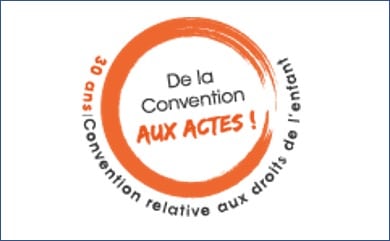
Dynamics From Convention to Action
The "From the Convention to Action" dynamic is made up of nearly 30 non-governmental organisations, associations and groups - including Action Education - involved in all areas of childhood in France and internationally. Gathered on the occasion of the 30th anniversary of the Convention on the Rights of the Child (2019), they are mobilizing to bring with one voice, towards public decision-makers, advocacy messages for a better effectiveness of children's rights in France and internationally.
In 2019, the member organisations had drafted 12 strong political acts bringing together 69 very concrete recommendations to help France to effectively implement the rights of the child set out in the CRC. In 2020, an Observatory was drafted to measure the evolution of the consideration of children's rights around eight important themes (Education, Environment, Governance, Justice, Participation, Precariousness, Protection and Health). In 2021, with the presidential elections in France approaching, the Dynamique wished to continue its monitoring of the evolution (progress, setbacks, stagnation) of the respect of children's rights, while making the link with its acts issued in 2019 and formulating concrete proposals to public decision-makers for the years to come, particularly on the issues related to Governance and Participation.
https://www.delaconventionauxactes.org/
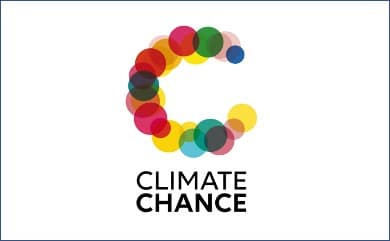
Climate Chance
Climate Change Education and Training Coalition for Africa
The association Climate Chance federates non-state actors (associations, NGOs, companies, local authorities, etc.) around the fight against climate change. Each year, it organises a Climate Chance - Africa Summit to bring together actors from the African continent, structured around 9 thematic coalitions (Mobility, Building, Energy, Education...), of which Action Education is a member and co-pilot with CliMates; Les Petits Débrouillards; Réseau Africain pour l'Education au Développement Durable (RAEDD); Institut National Polytechnique - Houphouët-Boigny; Ecole des Métiers de l'Environnement / Uni Lasalle; France Volontaires.
WHERE EN ARE WE?
In Africa, where the population is very young, education and vocational training are major elements of climate change adaptation and poverty alleviation, which is a crucial issue for the continent. Africa also has great potential to promote local, traditional and indigenous knowledge in the context of climate change adaptation.
The initial roadmap of this coalition recognises the role of education and training as a tool to combat climate change and to better understand and process information and risks. There is also a need for a comprehensive overhaul of education systems in many countries, with targeted training for educators. Even at the policy-making level, there seems to be a gap, hence the need for better-informed decision-makers.
WHERE DO WE WANT TO GO?
In order to redefine education to meet the new challenges posed by climate change, the education system needs to be reviewed and changed in its attitude towards climate issues. Education must focus on sustainable development, but also on national and global citizenship as a means to promote common values. In light of the context described in Section I, the following objectives can be identified for this coalition:
- Environmental education of the population at large. Development of environmental training modules for young people to integrate climate change adaptation and disaster risk reduction into the education sector.
- Capacity building for educators at all levels of education is needed to ensure that they deliver climate change education in a factual way where curricula and textbooks already include it, as this forms the basis of the knowledge about climate change that will be passed on.
- Training of key decision-makers and elected officials, including the dissemination of information and good practices that can be identified worldwide. This type of training would provide the African continent with more critical, informed and aware decision-makers on the link between climate change and sustainable development, who will be able to provide informed strategic oversight for the integration of the climate change dimension into the planning and budgeting process of projects and public policies.
- The involvement of local actors specialised in technical issues and training to ensure the quality of the information transmitted and the right channel of dissemination in order to raise awareness and empower young people in the implementation of the information strategy. Local actors also have a key role to play in the reporting and compilation of climate data at local level, which will feed into the information and training.
- Mobilisation and involvement of national and local media actors, and wider use of virtual capacities that were developed during the Covid-19 pandemic, in communication and public information, providing adequate information tools wherever possible.
- Overcoming funding problems, Promoting regular access to scaled and inclusive funding to facilitate multi-stakeholder partnerships (authorities, specialised organisations, youth organisations, voluntary organisations, etc.). The creation of partnerships between associations to enable them to reach a minimum size for accessing funding and to 'build up' knowledge about donor procedures can also be encouraged.
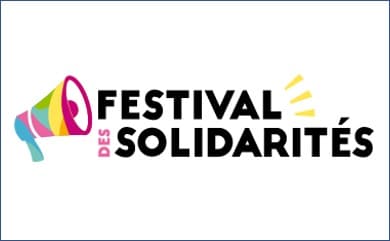
Festival of Solidarity
Educational coherence in the Val-d'Oise
Since 2012, the Cohérence éducative initiative has brought together some fifteen socio-educational actors in the Val-d'Oise. They organise an annual study day which aims to cross the views on a given theme, to share experiences, and to reflect on the complementarities between educational actors. The process is co-sponsored by Action Éducation and the Maison Départementale de l'Education du Val-d'Oise.
9 days have already been organised on various themes:
- What educational complementarities and coherences in a territory?
- (R)accrochage scolaire : quels enjeux ? (2013)
- School climate: all concerned! (2014)
- Building an educational community for living together (2015)
- Social networks: 1TP4SameScary! (2016)
- Critical thinking: always there (2017)
- Underneath the demands, benevolence! (2018)
- The educational community facing vulnerabilities (2019)
- Health crisis: between educational continuities and innovative practices (2020-21)
Atelier Canopé 95, DSDEN du Val-d'Oise, Action Education, Afavo, AFEV 95, Cahiers pédagogiques, CIJ 95, Clémi Versailles, École de la 2e chance 95, École et Famille, FCPE 95, Francas 95, Ligue de l'enseignement 95, MGEN, Pôle Ressources Ville et développement social. The members of the dynamic.
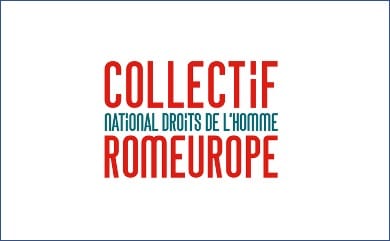
National Human Rights Collective Romeurope (CNDH ROMEUROPE)
Created in October 2000, the CNDH Romeurope brings together 50 local associations and collectives, including Action Education since January 2022, whose common aim is to support and defend the rights of people of Eastern European origin, Roma or presumed Roma, living in shanty towns, squats or other places of survival in France. The CNDH Romeurope defends access to common law and the effectiveness of the rights of these people in France. The association also aims to combat all forms of racism, discrimination or incitement to hatred on the grounds of nationality or real or supposed ethnicity. What are its missions?
- An observatory on the respect of fundamental rights, through legal monitoring, the publication of reports based on feedback from members present in the field and the capitalisation of experiences implemented at local level.
- A platform for the exchange and sharing of practices and experiences for citizens and associations. The CNDH Romeurope organises the exchange of information and local experiences, the pooling of skills and the development of tools on various themes: residence, health, work, childhood and schooling, housing, social rights, discrimination, etc.
- A militant structure which aims to: inform and question political and institutional leaders at national and European level on the issue of the non-respect of the rights of Eastern European citizens living in squats and shanty towns; make citizens aware of the reality of the situation of these people; lead struggles for the defence of their rights, without specific measures but in application of the common law
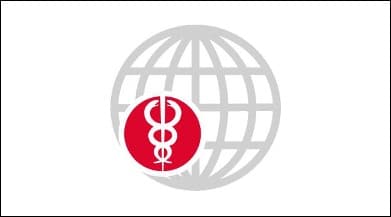
Medicus Mundi
Switzerland has a myriad of organisations and initiatives active in international health cooperation. Medicus Mundi Switzerland, the Health for All Network, brings together, on a voluntary basis, about 50 of these organisations which, in their diversity, have a common goal: health for all.

RECI
RECI, the Swiss Network for Education and International Cooperation, is an independent, non-profit network of 30 Swiss-based NGOs, academic institutions and individuals who promote the right to education for all.
https://www.reseau-education.ch/fr
